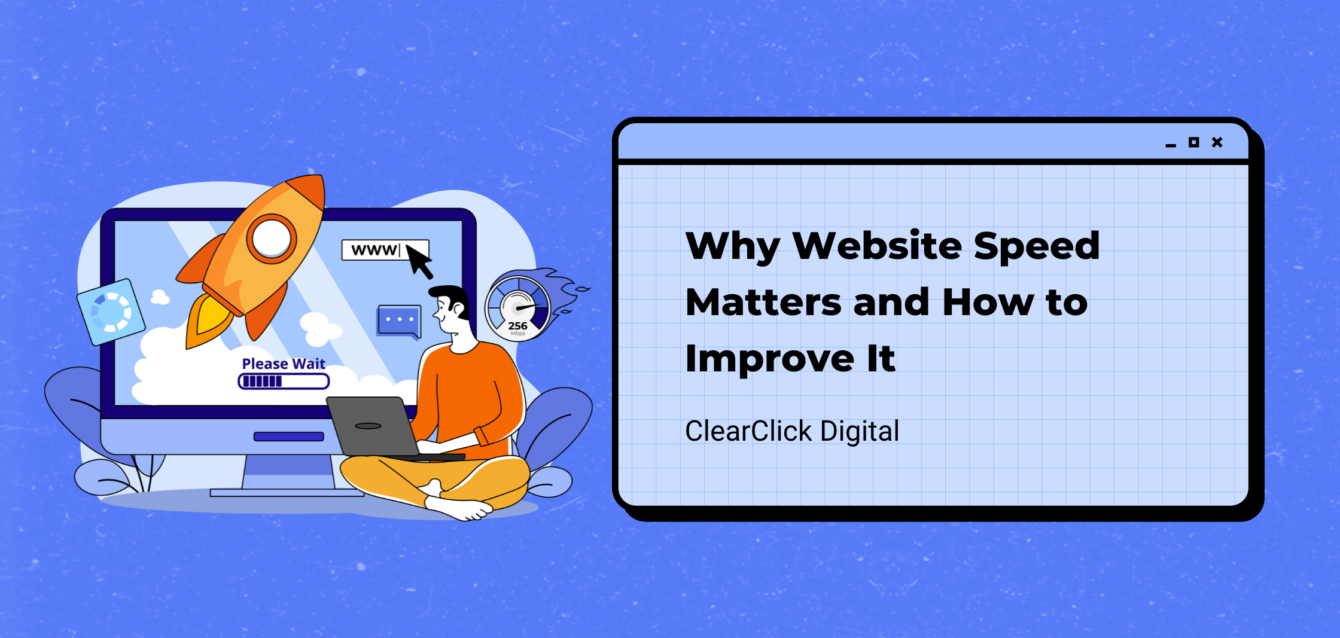Why Website Speed Matters
Website speed is one of the most critical factors in delivering a great user experience. A slow-loading site can frustrate visitors, increase bounce rates, and even hurt search engine rankings. In today’s digital world, users expect instant access to information, and a delay of even a few seconds can lead them to abandon your site for a competitor’s.
Beyond user experience, page speed importance extends to SEO. Google considers website speed as a ranking factor, meaning slow sites may struggle to appear in top search results. Additionally, fast website performance directly impacts conversion rates, as users are more likely to engage with and purchase from a site that loads quickly. In e-commerce, for example, even a one-second delay in load time can lead to significant revenue losses. A seamless experience ensures users stay on a site longer, interact more, and are more likely to convert into paying customers.
How to Improve Website Speed
To ensure an optimal browsing experience, businesses must focus on website speed optimization. One of the most effective ways to improve site load time is by optimizing images and media files. Large files can significantly slow down a website, so using compressed formats like WebP and JPEG, along with lazy loading techniques, can enhance performance without compromising quality.
Minimizing HTTP requests is another crucial step. Every webpage element, including scripts, images, and stylesheets, requires an HTTP request. Reducing the number of requests by streamlining design elements and combining files can significantly improve site load time. Additionally, enabling browser caching allows returning visitors to experience faster load times by storing website data on their devices.
A content delivery network (CDN) can further enhance website speed by distributing data across multiple global servers. This ensures users access the site from the nearest server location, reducing latency and improving mobile website speed. Optimizing code and reducing unnecessary plugins is also essential. Bulky or redundant code can slow down website performance, so minifying CSS, JavaScript, and HTML files, along with removing unused plugins, leads to better speed optimization.
Choosing a reliable web hosting service is vital for maintaining page speed importance. A high-performance hosting provider that offers SSD storage, dedicated resources, and scalable options ensures consistent website speed even during peak traffic. Since a large number of users browse on mobile devices, prioritizing mobile website speed is essential. Implementing responsive design, optimizing mobile images, and using Accelerated Mobile Pages (AMP) can significantly improve site performance on smartphones and tablets.
The Business Impact of Website Speed
A fast website is not just about technical performance—it has direct business implications. Poor website speed can negatively impact customer trust and brand reputation. Users expect a seamless digital experience, and slow load times may give an impression of inefficiency or outdated technology. This can be particularly harmful to e-commerce stores, where sluggish performance can lead to cart abandonment and lost revenue.
Search engine algorithms also reward fast website performance, making speed a crucial part of SEO strategy. Websites that load quickly tend to rank higher on search engines, receive more organic traffic, and have lower bounce rates. Additionally, Google’s Core Web Vitals place strong emphasis on user experience metrics, making speed optimization an integral part of staying competitive in search rankings. For businesses running paid ad campaigns, a slow website can lead to wasted advertising budgets, as users may click on an ad but leave before the site fully loads.
Future Trends in Website Speed Optimization
With increasing digital advancements, the expectations around website speed continue to evolve. Emerging technologies such as AI-driven website performance monitoring and predictive loading techniques are helping businesses stay ahead of speed-related challenges. Additionally, the growth of 5G networks is expected to boost mobile website speed, making site performance even more critical.
As sustainability becomes a priority, businesses are also adopting energy-efficient web design strategies. Lightweight coding, optimized data storage, and eco-friendly hosting solutions are helping reduce the environmental impact of online activities. The future of website speed optimization will likely focus on a combination of AI-powered automation, user personalization, and environmentally responsible web development practices.
Conclusion
Website speed is not just about convenience—it directly affects user satisfaction, SEO rankings, and conversion rates. By focusing on website speed optimization and implementing strategies to improve site load time, businesses can enhance user experience, reduce bounce rates, and drive more traffic. In an era where speed defines success, ensuring fast website performance is essential for staying competitive in the digital landscape.
Want to optimize your website speed for better performance? Partner with ClearClick Digital for expert website speed solutions tailored to your business needs.

